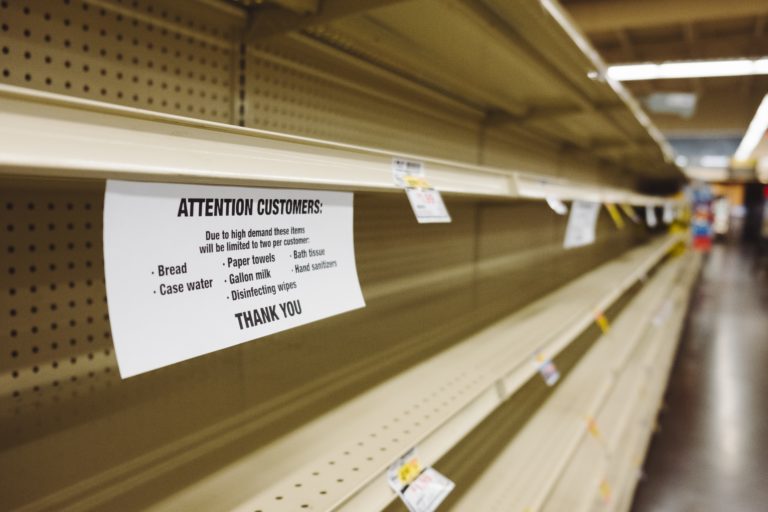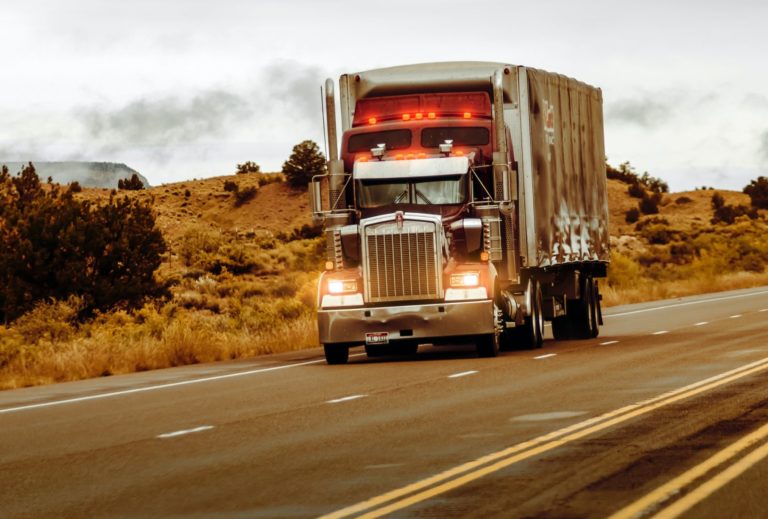Supply Chain
Supply Chain Isn’t Just a Holiday Issue. It is on the 2022 Ballot in Key States.
Overview
For months, Americans have been battered by stories about the holiday supply chain.
The sharp focus on how its constraints will affect everything from Thanksgiving turkeys to Christmas presents implies that the situation will improve with the new year.
But supply chain challenges won’t end when the ball drops. They’ll be on the ballot in 2022.
In the key states of Arizona, Georgia, Nevada and New Hampshire, Consumer Brands/Morning Consult polling found that the supply chain is going to be a major issue with voters in the 2022 midterm election — and that they expect their elected officials will act on solutions to prevent the next supply chain crisis.
Key Facts

7-in-10 respondents have experienced shortages at grocery stores lately.

9-in-10 respondents feel it is important to expand trucking capacity next year to meet supply chain demands.

8-in-10 respondents expect to see trucking action from their senators.
Grappling with Shortages
Across states, challenges with product shortages and frustration with supply chain slowdowns were common.
A majority of respondents reported that they have recently experienced shortages in grocery stores. New Hampshire residents reported the highest rate (75%), followed by Georgia (73%), Arizona (70%) and Nevada (65%).
There was strong alignment across residents of each state when asked if supply chain issues have had a major or big impact on their ability to get products they need.
Fifty-four percent of voters in Arizona, Georgia and Nevada agreed, followed by 52% in New Hampshire.
Finding Food and Toilet Paper Trumps Holiday Struggles
This echoes findings from a recent Consumer Brands/Ipsos poll of 1,000 American adults conducted in October.
Net Concern Of access to product Categories
| AZ | GA | NV | NH | |
| Food and Beverage | 53 | 60 | 57 | 61 |
| Personal Care | 46 | 52 | 44 | 59 |
| Cleaning | 32 | 40 | 27 | 39 |
| Electronics | -29 | -22 | -32 | -30 |
| Toys | -33 | -23 | -29 | -31 |
| Apparel and Shoes | -26 | -15 | -32 | -18 |
It found that concern about access to food and beverage products (55%), cleaning and personal care products (44%) and holiday items (34%) top the list — items like electronics (24%), apparel and shoes (21%) and toys (25%) ranked lower on the list of worries.
Strong Support for Tackling Major Supply Chain Bottlenecks
“Major” or “Big” BottleNecks
Taking Necessary Action to Increase Trucking Capacity
Voters in all four states surveyed are highly supportive of a variety of options to increase trucking capacity.
Overwhelming majorities in New Hampshire (92%), Arizona (89%), Nevada (89%) and Georgia (89%) feel it is important to expand trucking capacity next year to meet supply chain demands.
Support for truck Capacity ideas
Where Voters Expect Congress to Act
Support for solutions to increase trucking capacity are not in the hands of consumers or entirely up to private industry. There is a critical role for elected leaders to play.
Voters expect their senators will tackle a host of supply chain issues in 2022.
WHat Should Elected officials address?
Voters are more likely to back Senate candidates who support ideas to expand trucking capacity.
| “Air traffic control” to fill empty trucks | Hours of Service flexibility | Reasonable truck weight increases | |
| AZ | 67% | 69% | 57% |
| GA | 69% | 70% | 59% |
| NV | 68% | 77% | 60% |
| NH | 72% | 66% | 54% |
What Can We Expect in 2022?
The country is at an inflection point where the supply chain’s vulnerabilities are exposed and it is time to act on the lessons we have learned. But the window for meaningful action is shrinking. So is the patience of American voters, who will question why we didn’t do more to face future supply chain crises if we fail to act today.
It took only one year for trucking capacity to become kitchen table conversation. In the next year, the state polls have made clear that these issues will move to the ballot box.
Commonsense trucking solutions will provide consumers with immediate relief and provide long-term improvements to the system.
The CPG industry has proven essential, even more so in the last two years. Beyond being essential, the industry is also consequential. What affects CPG companies has a significant impact on the consumers it serves. And right now, nothing is affecting the industry — and consequently consumers — more than supply chain.
Elected officials can’t afford to lose sight of the supply chain after New Year’s Day — because its importance will not be lost on voters in the next election.
Methodology
Consumer Brands’ and Morning Consult’s poll, conducted in from November 24 to December 8 in 2021, included respondent information from 692 registered voters in Arizona, 693 registered voters in Georgia, 589 registered voters in Nevada and 398 registered voters in New Hampshire.
Read More

Blog
On Trade: How Renewing the USMCA Agreement Supports American Manufacturing

Press Release
Consumer Brands Issues Statement on the Trump Administration’s Executive Order Modifying the Scope of Reciprocal Tariffs

Press Release
Consumer Brands Calls for Tariff Exemptions on Scarce Ingredients and Inputs

